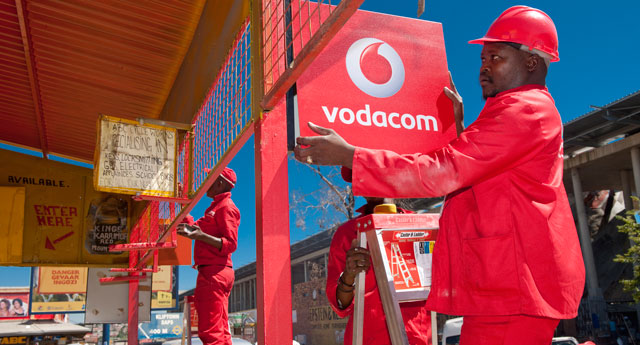
The lack of readily available radio frequency spectrum is hobbling South Africa’s national broadband hopes, says mobile network Vodacom.
South Africa’s government has been slow in implementing its digital broadcast migration project which is targeted at opening frequencies for faster mobile Internet services such as 4G.
Government only started distributing a few thousand of its 5m free digital TV set-top boxes for the poor late last year after missing several self-imposed deadlines since 2008. At this stage, it’s unclear when the process will be completed.
Telecommunications & postal services minister Siyabonga Cwele was also unclear in parliament last week about when spectrum could be auctioned off in South Africa exactly.
In the meantime, mobile networks such as Vodacom and MTN have been forced to re-farm their existing spectrum to deliver limited 4G/LTE services.
Despite Vodacom’s LTE network being live in South Africa since 2012, only 58% of the country has access to its faster network, the company reported on Monday in its preliminary annual financial results.
“South Africa is falling behind on broadband roll-out and access,” said Vodacom CEO Shameel Joosub in a statement to shareholders on Monday.
“Due to the country’s dependency on mobile data, it is key to secure access to spectrum to unlock this growth potential and fulfill the growing data demands of the population,” he said.
Vodacom, in its results announcement, also hinted at the problems it has experienced in attempting to attain spectrum in different ways.
In 2014, Vodacom embarked on a bid to buy Neotel for R7bn, a deal that was initially planned to boost the mobile operator’s fixed-line capabilities and attain Neotel’s spectrum.
However, following a lengthy regulatory process and opposition to the deal from Cell C and MTN, Vodacom in late 2015 decided to drop its bid for Neotel’s spectrum.
But the entire deal fell through earlier this year after Vodacom decided to walk away.
“The proposed acquisition of Neotel lapsed in March due to regulatory complexities and certain conditions not being fulfilled,” said Joosub on Monday.
“Our ambitions to increase the roll-out of fibre-based broadband services to homes and businesses remain. We will also continue to drive our customer experience and network advantage by investing heavily in resources and infrastructure.
“As was the case a year ago, we remain cautiously optimistic while being fully cognisant of the various changing regulatory and macroeconomic environments,” said Joosub.
Despite the regulatory and macroeconomic challenges, Vodacom reported on Monday that it has “more than doubled the number of 4G/LTE sites in the year to over 6 000 sites”.
The company further spent R8,7bn during the year to widen 3G and 4G data coverage across South Africa.

